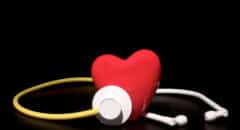
Being diagnosed with heart failure can be devastating. However, the diagnosis doesn’t mean you can’t live well and prevent the condition from getting worse. Two essential areas that can help you accomplish this are communicating well with your doctor and maintaining a healthy lifestyle.
10 Symptoms To Tell Your Doctor
1. Swelling In The Body
The right side of your heart is responsible for collecting blood from your body. If it fails, fluid can collect in the body. The accumulation of fluid can be more obvious in your ankles but tends to affect other areas over time. Eventually, you’ll notice swelling in your legs as well. It’s important to talk to your doctor before that point.
2. Unexplained Fatigue
Your heart does a lot of work to circulate blood around your body. When it’s not healthy, your heart isn’t giving you everything you need. That means you’ll feel tired more easily. If it’s getting harder for you to do physical activity then your heart failure might be getting worse.
3. Shortness Of Breath
This issue is also related to how well your heart can do its job. Having a fully functioning circulatory system is important to your respiratory system as well. The left side of the heart collects oxygen-rich blood so if it’s failing, fluid builds up in your lungs. This build-up causes shortness of breath.
4. Sudden Weight Gain
Unexplained weight gain with heart failure is typically associated with internal fluid retention. This can happen even if you don’t notice swelling in your legs or ankles.
5. A Persistent Cough
This issue is associated with the accumulated fluid in your lungs. It can be worse when you’re lying down or being active. For some people, the cough is accompanied by wheezing, which is similar to an asthmatic episode.
6. Difficulty Sleeping
Fluid build-up can make it difficult to breathe when you’re lying down. That, in turn, affects how well you sleep. While some people can still get a decent night’s sleep by sitting upright or staying at an incline, it’s not ideal for everyone.
RELATED: Heart Failure in Young Black Women: Things to Look Out For
7. An Increased Heart Rate
As your heart struggles to carry out its duties, you may notice that your heart rate is higher than normal.
8. Stomach Pain
Unexplained stomach pain is another symptom that’s associated with fluid build-up. Though the pain may be in your stomach, the issue is most likely happening to your liver. If your liver is enlarged, you may notice the pain in the upper right side of your stomach.
9. Tightness In The Chest
Just as fluid build-up in your lungs can cause coughing and wheezing, you might notice some tightness or discomfort in your chest. This tightness may or may not get worse if you try to be physically active.
10. Feeling Confused
Heart failure can affect blood flow throughout your body. The brain is one of the organs that can suffer from poor circulation. If this happens, you can experience confusion, lightheadedness, and disorientation.
The Risk For Black Americans
Though the treatment protocols for heart failure have improved, statistics show that things have only gotten worse for Black Americans. Black people remain more likely to be diagnosed with heart failure at a later stage than other ethnicities and are also at a higher risk of not having their symptoms properly under control. Overall, Black Americans are 2.5 times more likely to be hospitalized for heart failure complications. They’re also at a three times higher risk of dying from heart failure.
These numbers paint a picture that shows you need to be extra careful with heart failure. You should never ignore any changes in your symptoms.
How To Take Care Of Yourself
It’s important to stick to your medical regimen when you have heart failure. You should also ensure that you manage any other chronic conditions well. Additionally, lifestyle changes can play a critical role in keeping your heart failure in check. Experts recommend that you stay away from alcohol, cigarettes, and caffeine. While exercising regularly, you need to take it easy on your heart. It’s a good idea to discuss what exercise routines will work best for you. Finally, you need to stick to a heart-healthy diet that is low in salt and unhealthy fats and high in fresh foods, whole grains, and healthy fats.
The best way to stay healthy with heart failure is to monitor what’s going on with your body. Even as you stick to your regimen and live healthily, your symptoms can get worse. The changes may mean that your medications need to be modified or it might be time for a different treatment method altogether.









